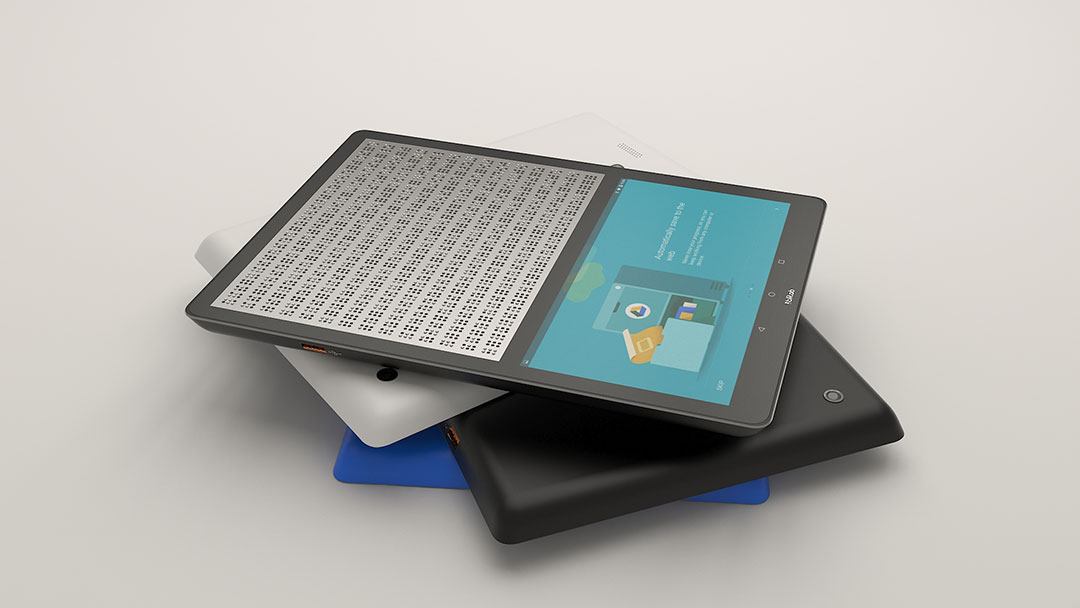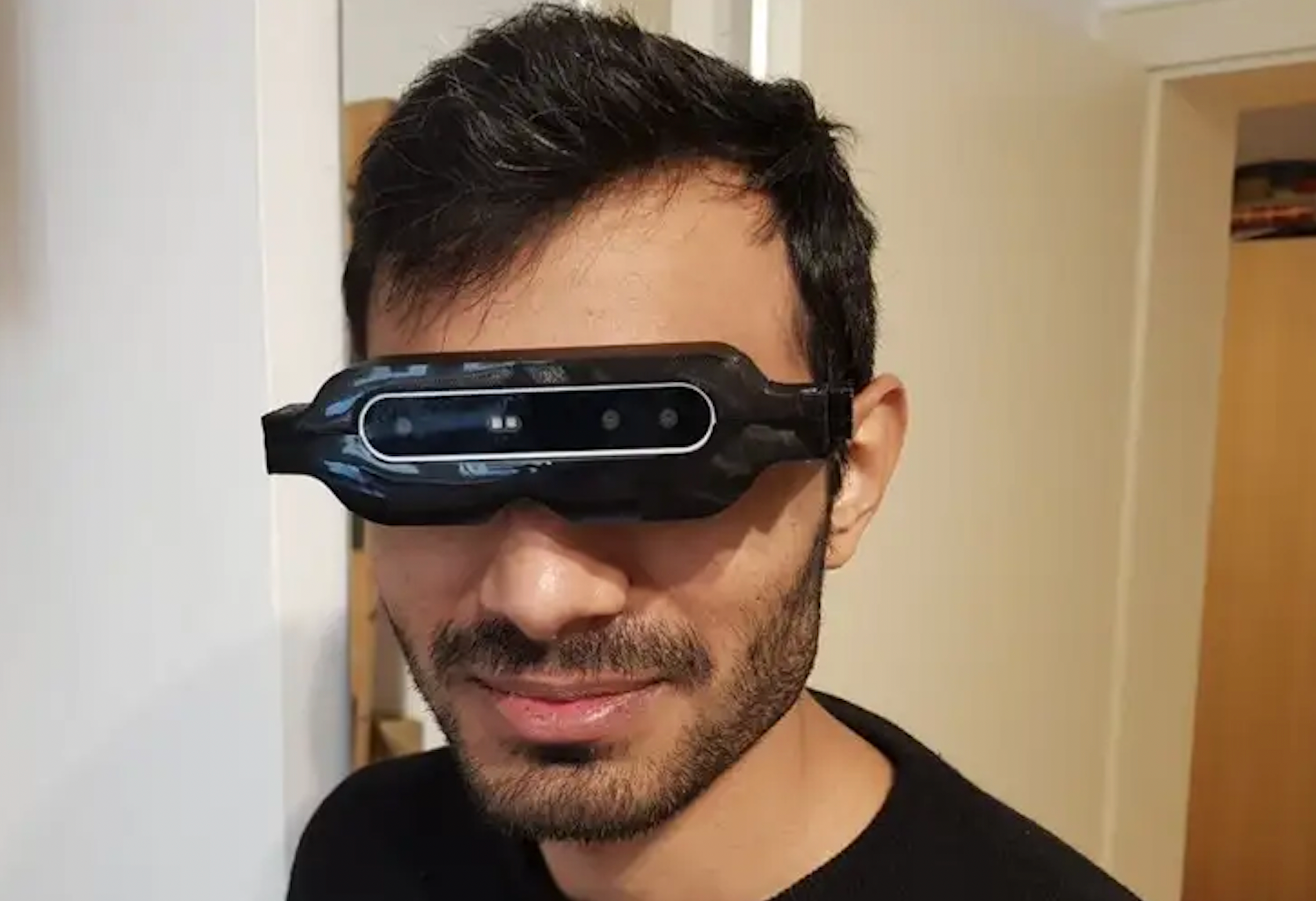Empowering Independence With Assistive Innovation for the Blind
The integration of assistive modern technology right into the lives of individuals with aesthetic disabilities represents a significant improvement in advertising independence and self-sufficiency. From innovative screen viewers to innovative wise canes, these tools not only enhance daily navigating and communication yet likewise equip users to engage meaningfully in different facets of life. As we explore the myriad advantages and real-world applications of these technologies, it comes to be vital to analyze the hidden elements that contribute to their performance and the potential for future growths in this crucial field.
Summary of Assistive Technology

The growth of assistive technology is based in principles of inclusivity and empowerment. Advancements in software application, hardware, and sensory improvements provide customers with alternatives customized to their particular demands. From display visitors that transform message to speech, to tactile tools that share details with touch, these devices transform the way people involve with their surroundings.
In addition to sensible applications, assistive modern technology promotes higher social incorporation and involvement in numerous industries, including education and learning and employment (Mobility aids for visually impaired users). As r & d remain to progress, the potential for assistive innovation to further improve the lives of aesthetically damaged people stays promising, paving the way for a much more equitable culture where every person can flourish
Sorts Of Assistive Instruments
A variety of assistive devices have actually arised to support individuals with aesthetic disabilities, each created to fulfill details needs and enhance daily performance. These tools vary from low-tech options to sophisticated innovations, offering diverse choices for individuals.
Low-tech gadgets include magnifiers and large-print materials that aid in reading and writing. Braille devices, such as Braille styluses and slates, enable tactile reading and interaction. Alignment and mobility help, like white canes, aid users navigate their atmosphere securely.
On the greater end of the range, digital magnifying systems and screen readers supply significant assistance. Digital magnifiers enable individuals to enlarge text and images on displays, while display visitors transform electronic material into manufactured speech, assisting in accessibility to information on computers and smartphones.
Smart device applications likewise play an important role, giving functions like text recognition and navigating support. Wearable modern technology, such as wise glasses equipped with augmented reality, is arising as a promising device to enhance situational understanding.
Benefits of Assistive Technology
The integration of assistive modern technology significantly enhances the lifestyle for individuals with aesthetic impairments. These innovations empower users by promoting freedom, allowing them to browse their settings extra effectively and carry out daily jobs with higher convenience. Display visitors and zoom software application allow individuals to gain access to digital info, cultivating academic and specialist chances that might have previously been out of reach.
Furthermore, assistive tools such as clever walking sticks and general practitioners applications give real-time navigating aid, boosting wheelchair and security. This increased freedom not only boosts self-confidence however likewise urges social interaction, allowing users to get involved more fully in their communities.
Assistive modern technology also facilitates interaction, assisting individuals get in touch with others through voice acknowledgment and text-to-speech applications. This ability is crucial for preserving connections and accessing critical information.
Furthermore, the personalization alternatives available with many assistive modern technologies guarantee that customers can customize tools to their certain requirements, additionally boosting functionality and efficiency. In general, the advantages of assistive modern technology for people with visual problems are extensive, promoting an extra comprehensive culture where every person can pursue their objectives and ambitions.
Study and Success Stories
Highlighting the transformative influence of assistive technology, various case studies illustrate how people with aesthetic disabilities have efficiently incorporated these devices into their every day lives. One compelling example involves a college pupil who made use of screen reading software to browse on the internet resources and academic products properly. This technology not only facilitated her education Find Out More and learning however this contact form additionally boosted her self-confidence in participating in conversations and team projects.
Another instance study includes an expert that uses a smart device application designed for navigation and things acknowledgment. By utilizing this app, he has actually restored autonomy in both his personal and work settings, allowing him to commute individually and engage with colleagues a lot more successfully.
Additionally, a retired person shared her experience with braille e-readers, which allowed her to access a vast selection of literary works and stay gotten in touch with her neighborhood via publication clubs.
These success stories highlight the critical role of assistive technology in promoting independence, improving quality of life, and advertising social integration for individuals with visual disabilities (Smart glasses for the visually impaired). By welcoming these cutting-edge tools, users can conquer obstacles and seize chances that add to their professional and personal gratification

Future Patterns in Assistive Technology
Development in assistive technology is poised to redefine the landscape of assistance for individuals with visual impairments. Emerging fads emphasize the combination of expert system (AI) and artificial intelligence, which boost the capability of devices that help with navigating and information availability. For example, AI-driven applications are now capable of interpreting visual data in real-time, making it possible for users to involve with their environment a lot more individually.
Furthermore, the advancement of wearable modern technology is progressing swiftly. Smart glasses furnished with increased truth (AR) can offer audio summaries of environments, changing how individuals interact with public areas. These gadgets not just promote autonomy however additionally foster social inclusion.
In Addition, the Web of Points (IoT) is making homes smarter, enabling for seamless connection in between assistive devices and everyday appliances. This connectivity equips customers by enabling computerized responses and voice-activated controls tailored to individual requirements.
Conclusion
To conclude, assistive innovation plays a crucial duty in empowering individuals with visual problems by boosting their independence and engagement with their surroundings. temporary double vision The diverse array of applications and gadgets available not only helps with navigation and communication however likewise promotes social combination and possibilities for personal and expert growth. As innovations continue in this field, the possibility for improving the lifestyle for those with aesthetic disabilities will broaden, fostering greater autonomy and empowerment.
